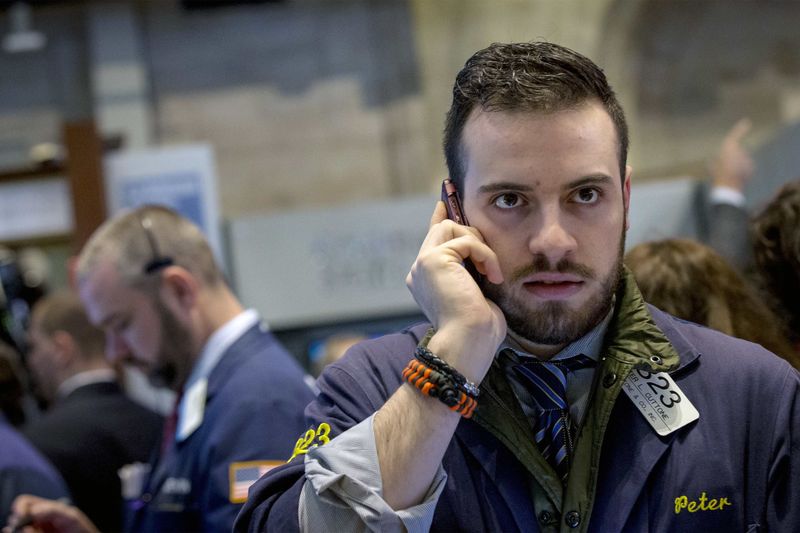By Yasin Ebrahim
Investing.com – The S&P 500 slashed its losses Wednesday, after Republicans signaled support to extend the ceiling at least temporarily, easing fears about U.S. default and paving the way for bullish bets on stocks to resume.
The S&P 500 fell 0.2%, the Dow Jones Industrial Average slipped 0.4% or 135 points, the Nasdaq was down 0.04%.
Senate Minority Leader Mitch McConnell is reportedly ready to offer the Democrats a short-term debt ceiling extension through November. The news comes ahead of a vote to suspend the debt limit until December 2022 that is expected to fail in the Senate.
Ahead of the vote, investors didn’t' appear eager to bet on a U.S. default as 5-year credit default swaps default risk pricing on the U.S. debt ceiling has only "edged up a smidge in the past 2-3 weeks and 4-week bill yields are little changed again this morning," Scotia Economics said.
Technology led the move, with megacap tech in the ascendency.
Apart from Apple (NASDAQ:AAPL), Microsoft (NASDAQ:MSFT), Amazon.com (NASDAQ:AMZN), and Alphabet (NASDAQ:GOOGL) were in the green.
The upside in the broader market was stifled, however, by fall in energy, paced by a decline in oil prices after data showed an unexpected build in weekly U.S. crude supplies.
Crude inventories increased by 2.346 million barrels last week, compared with analysts' expectations for a draw of 418,000 barrels.
Elsewhere in the energy complex, natural gas reversed its gains after Russian President Vladimir Putin said Russia is ready to supply more natural gas to ease the ongoing energy crunch.
The backdrop of rising energy prices has stoked investor fears that elevated inflation will persist just as the strength of the recovery remains doubt, potentially leading to stagflation.
These fears are playing out in the bond market, where the catalyst driving Treasury yields has switched from rising real yields to a "lift in breakevens – indicative of rising stagflation worries due to the rent lift in energy prices," Daiwa Capital Markets said in a note.
Elsewhere in the energy complex, natural gas reversed its gains after Russian President Vladimir Putin said Russia is ready to supply more natural gas to ease the ongoing energy crunch.
The backdrop of rising energy prices has stoked investor fears that elevated inflation will persist just as the strength of the recovery remains doubt, potentially leading to stagflation.
These fears are playing out in the bond market, where the catalyst driving Treasury yields has switched from rising real yields to a "lift in breakevens – indicative of rising stagflation worries due to the rent lift in energy prices," Daiwa Capital Markets said in a note.
Breakeven inflation expectations on five-year Treasury Inflation-Protected Securities (TIPS) rose to 2.61%, the highest since late July, while the 10-year TIPS hit 2.45%, the highest since June.
Other cyclical sectors were also in the red including financials and industrials even as the data the economy created more private jobs last month.
ADP (NASDAQ:ADP) private payrolls climbed by 568,000 in September, beating economists estimates for a rise of 450,000, driven by hiring in service industries.
In other news, General Motors (NYSE:GM) unveiled a plan to double annual revenue and improved margins by the end of this decade.
Moderna (NASDAQ:MRNA) fell 5% after Sweden’s public health agency suspended use of the company’s COVID-19 vaccine for anyone born in and after 1991 because of increased risk of heart inflammation.
